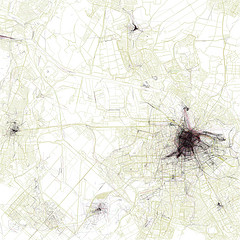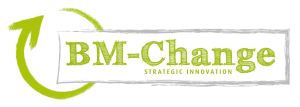 Today I attended a workshop from “Platform Open Data” organised by ECP-EPN. It was an interesting mix of providers and users of open data that discussed various issues around Open Data in the Netherlands. Examples where provided by people from Buienradar who uses KNMI data, VWE using RDW data, Elsevier using CBS data and DHV using satellite data from NSO. It was a very open and positive discussion and I couldn’t help noticing that the business-models and -cases for the open data ecosystem still need some further development.
Today I attended a workshop from “Platform Open Data” organised by ECP-EPN. It was an interesting mix of providers and users of open data that discussed various issues around Open Data in the Netherlands. Examples where provided by people from Buienradar who uses KNMI data, VWE using RDW data, Elsevier using CBS data and DHV using satellite data from NSO. It was a very open and positive discussion and I couldn’t help noticing that the business-models and -cases for the open data ecosystem still need some further development.
Positive shared business case
All attendees shared the believe that the overall business case for Open Data in the Netherlands is positive. It will bring more innovation, more economic activity and more wealth. But for some organizations in the Open Data business ecosystem, the business case is not so simple. The distribution of costs and benefits over the various stakeholders is still something that needs to be looked at. RDW, for example, is responsible for all vehicle registrations. It operates independent from the government and does not receive public funding. According to the announced “Data is open, unless”-policy, RDW needs to make their data available as open data before 2014. But they don’t receive additional funding for the investments to be made for publishing the data. It is also unclear if existing customers, who today pay a large sum of money for the data and additional services, will switch to the free option. In short, revenues will decline and costs will rise if they implement open data in their current business model. RDW will need to renew its business model but without having a clue about who their new customers will be, and limited in their options due to regulatory reasons, this will be very challenging.
Charging marginal cost hampers innovation
 Another point of discussion was the fee charged by some open data providers. Organizations like NDW ask €6000,- per year to access their traffic related data. Often these charges are described as “provisioning costs” or “connection charges”. Although these costs are relatively small for existing businesses, they raise the market entry barrier for new small entrepreneurs and students significantly. And it are just these newcomers from which innovative applications are expected. By focusing on small short-term profits, larger and more sustainable future profits will not be made. Again, the individual business case from a data provider frustrates the shared business case. Removing this barrier will be benefitial for the adoption of open data and the creation of new applications.
Another point of discussion was the fee charged by some open data providers. Organizations like NDW ask €6000,- per year to access their traffic related data. Often these charges are described as “provisioning costs” or “connection charges”. Although these costs are relatively small for existing businesses, they raise the market entry barrier for new small entrepreneurs and students significantly. And it are just these newcomers from which innovative applications are expected. By focusing on small short-term profits, larger and more sustainable future profits will not be made. Again, the individual business case from a data provider frustrates the shared business case. Removing this barrier will be benefitial for the adoption of open data and the creation of new applications.
I am positive that open data will benefit all of us and it was inspiring to see everybody working on ways to make it work. As one of the participants said: “It is not just a matter of opening the data pipe, it is a new way of doing business together”.

Reblogged this on Andrius.Žilėnas's Blog'as.